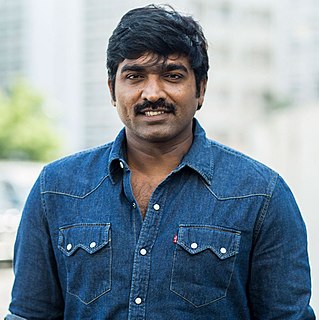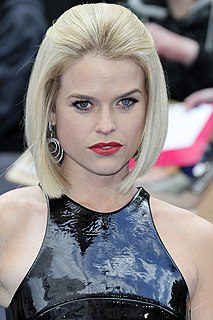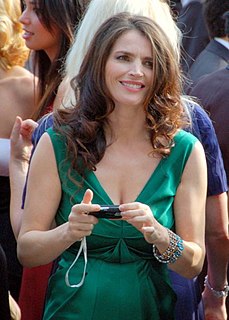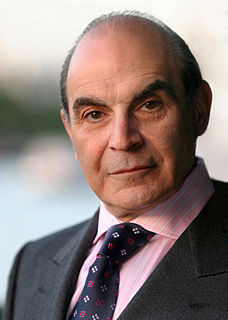A Quote by Vijay Sethupathi
I will do whatever I can to become the character. I have no right to distract the audience from the mood of the film.
Related Quotes
In film, the camera can get an array of shots so the audience can see the emotion the character is giving off. Using close-ups on the character's face really helps get the message across. On stage, you can't do that. But the stage has that live feeling that you can't get anywhere else because the audience is right there.
Whatever character you play, whatever film it is, whatever story it is, for me, in my training it's always something that gives you a layered character, it's understanding the secret of that character, and so whatever comes up as "Oh, I thought that person was that," you are always carrying that within you. So actually what you're playing all the way through is both and it's just what comes out in the scene or the circumstance.
Any established media, such as literature, music, or film, offers a wide variety of experiences touching emotions from the very primal to the deeply complex. No matter who the audience are or what kind of mood they are in, there will always be something right for them. Video games, as a fast-growing new medium, is on its way to catching up.
And, for any performer, to be able to go deep into character is fantastic. In film you only get to do that if you're the leading character. But in television you get 18 hours to really test the audience and take them to the edge of how far they will go with this character. I can step over this line and I love that.
I like the adrenaline of live performance, whatever that is, appearing in front of an audience of any kind, whether it's one or a hundred or a thousand. It gives you a buzz of adrenaline, its exciting. The thing about that is that you want to make those nerves work for you in terms of an energy that's appropriate for the part and the performance, and not to distract the people who are watching so that they become nervous for you.
You never know how a film will play, whether it will be successful or not, or whether it will touch the audience. I always said to myself that whatever happens, big audience or small, that I would not let the results have an impact on my way of working. But it would be a bit silly for me to change my methods when I have a big success. That means my methods work well.
In film, the camera can get an array of shots so the audience can see the emotion the character is giving off. Using close-ups on the characters face really helps get the message across. On stage, you cant do that. But the stage has that live feeling that you cant get anywhere else because the audience is right there.
I realized that acting is not all about receiving people's applause or cheer. It is about delivering the right character to the audience and feeling satisfied in who you become on stage. Therefore, I try to focus more on the abstract qualities of acting, and I hope to become a better actress throughout time.


































